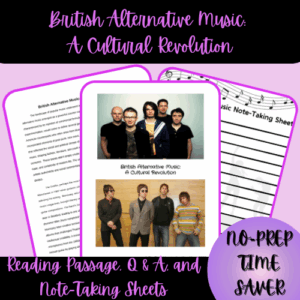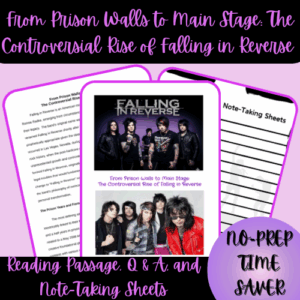-
High School British Alternative Music Reading Passage and Q & A$4.00Add to cart
Comprehensive British alternative music reading passage with 20 critical thinking questions exploring bands…
0 out of 5 -
High School Falling in Reverse Reading Passage and Q & A$4.00Add to cart
High school reading comprehension resource featuring Falling in Reverse biography with 20 analytical…
0 out of 5



